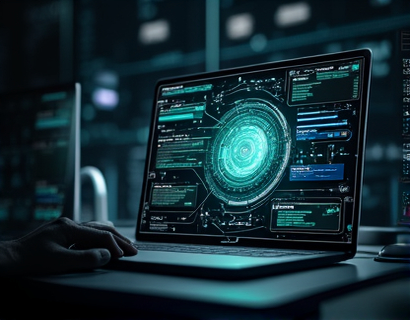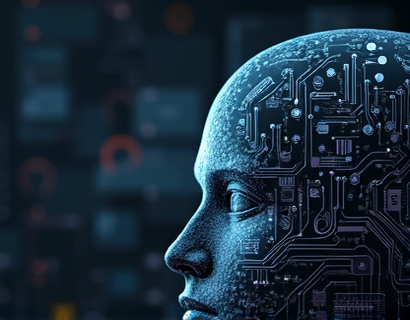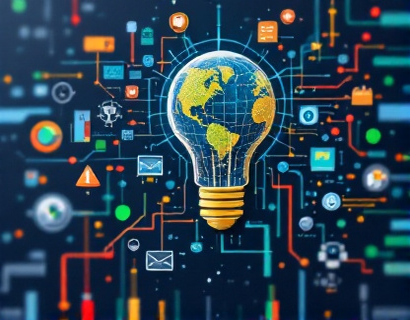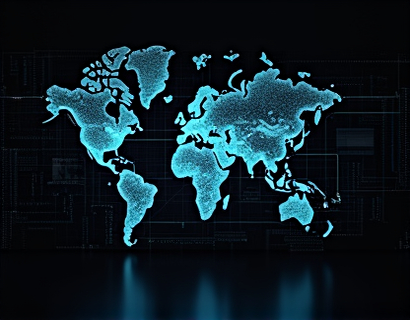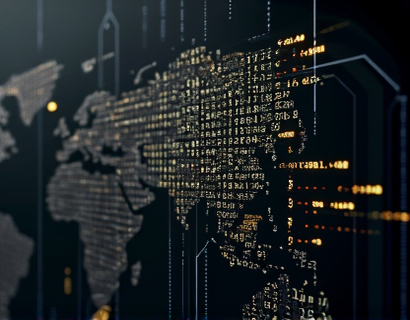Revolutionizing Productivity in the Digital Age: The Synergy of AI and Cryptocurrency
The integration of Artificial Intelligence (AI) and cryptocurrency is transforming the digital landscape, offering unprecedented opportunities to enhance productivity and efficiency. This synergy is not just a technological novelty but a fundamental shift in how we approach work, manage resources, and interact with digital systems. As tech-savvy innovators and early adopters increasingly explore the potential of AI and cryptocurrency, the impact on various industries is becoming more pronounced. This article delves into the ways these advanced technologies are redefining productivity in the modern world.
The foundation of this transformation lies in the unique properties of cryptocurrency and the capabilities of AI. Cryptocurrency, with its decentralized and secure nature, provides a robust framework for transactions that are transparent, immutable, and resistant to fraud. AI, on the other hand, brings intelligent automation, predictive analytics, and enhanced decision-making to the table. When combined, these technologies create a powerful ecosystem that can optimize workflows, reduce costs, and improve overall efficiency.
Enhancing Workflow Efficiency with AI
AI has already made significant inroads into various sectors, from healthcare to manufacturing, by automating repetitive tasks and providing insights through data analysis. In the context of digital workflows, AI can streamline processes by identifying bottlenecks, optimizing resource allocation, and automating routine tasks. For instance, AI-driven tools can manage project timelines, allocate tasks based on team members' availability and expertise, and even predict potential delays, allowing for proactive adjustments.
One of the key benefits of AI in workflow management is its ability to learn from past data and improve over time. Machine learning algorithms can analyze historical project data to identify patterns and optimize future project planning. This not only saves time but also reduces the likelihood of errors and misallocations. For example, AI can predict the most efficient sequence of tasks, ensuring that resources are used optimally and deadlines are met consistently.
Cryptocurrency as a Catalyst for Decentralized Productivity
Cryptocurrency plays a crucial role in this ecosystem by providing a decentralized and secure means of transaction and data management. Blockchain technology, the underlying infrastructure of cryptocurrency, ensures that all transactions are recorded in a tamper-proof ledger, accessible to all participants. This transparency and security are invaluable in a digital workflow where multiple parties may be involved.
Smart contracts, a feature of blockchain, automate and enforce contractual obligations without the need for intermediaries. This not only speeds up processes but also reduces the risk of disputes and fraud. In a professional setting, smart contracts can be used to automate payments, verify deliverables, and ensure compliance with agreed terms. For instance, a freelancer can receive payment automatically once the client confirms the completion of a task, eliminating the need for manual invoicing and payment processing.
Integration of AI and Cryptocurrency for Advanced Productivity Solutions
The true power of AI and cryptocurrency is realized when they are integrated into a cohesive system. This integration enables the creation of advanced productivity solutions that leverage the strengths of both technologies. For example, an AI-powered platform can use cryptocurrency to incentivize contributors in a decentralized network. This model, often referred to as a decentralized autonomous organization (DAO), allows for community-driven decision-making and resource allocation.
In such a system, AI can analyze the performance and contributions of network participants, assigning tokens as a form of reward. These tokens can then be used within the ecosystem to access premium services, vote on proposals, or even trade for other cryptocurrencies. This creates a self-sustaining and motivating environment where productivity is directly linked to value creation and recognition.
Use Cases in Various Industries
The potential applications of AI and cryptocurrency in enhancing productivity are vast and varied. In the creative industry, for instance, AI can assist in content generation, from writing scripts to designing visuals, while cryptocurrency can facilitate fair and transparent royalty payments to creators. In the supply chain sector, AI can optimize logistics and inventory management, with blockchain ensuring traceability and security of transactions.
In the realm of finance, AI-driven trading algorithms can analyze market data and execute trades with high precision, while cryptocurrency provides a fast and secure means of transaction. This combination can lead to more efficient and less risky trading operations. In the healthcare sector, AI can help in managing patient data and optimizing treatment plans, with blockchain ensuring the secure and privacy-compliant sharing of medical records.
Challenges and Considerations
Despite the numerous benefits, the integration of AI and cryptocurrency also presents challenges that need to be addressed. One of the primary concerns is the regulatory landscape. As both technologies are still evolving, regulatory frameworks are often lagging, leading to uncertainty and potential legal risks. Organizations must stay informed about local and international regulations to ensure compliance and mitigate risks.
Another challenge is the technical complexity involved in integrating these technologies. Developing a robust system that seamlessly combines AI and cryptocurrency requires expertise in multiple domains, including machine learning, blockchain development, and cybersecurity. Companies must invest in skilled personnel or partner with specialized firms to overcome these technical hurdles.
Future Prospects and Innovations
Looking ahead, the synergy between AI and cryptocurrency is poised to drive further innovations in productivity and digital workflows. One exciting area is the development of AI-powered virtual assistants that operate on blockchain networks. These assistants can perform a wide range of tasks, from scheduling appointments to managing digital assets, all while ensuring transparency and security.
Additionally, the rise of Web3, a decentralized internet powered by blockchain, will create new opportunities for AI-driven applications. In this environment, users will have greater control over their data and digital identities, enabling more personalized and secure productivity tools. AI can analyze user behavior and preferences to offer tailored services, enhancing the overall user experience.
Conclusion
The integration of AI and cryptocurrency is not just a technological trend but a transformative force reshaping the digital world. By leveraging the strengths of both technologies, organizations can achieve unprecedented levels of productivity and efficiency. As the ecosystem continues to evolve, it is essential for businesses and individuals to stay informed and adapt to these changes. Embracing the potential of AI and cryptocurrency can lead to a future where work is more streamlined, secure, and rewarding.










